Private land
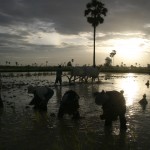
Rights to private land ownership were guaranteed in the 1993 Constitution and formally established by the 2001 Land Law. Despite an established legal framework to protect private property rights, those rights are often insecure for many. ref='https://opendevelopmentcambodia.net/topics/private-land/ ' class='cambodia-color'>...
Agricultural policy and administration
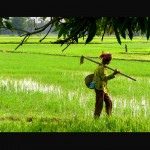
Agriculture in Cambodia accounts for approximately 56% of the labour force. The size of the sector means that policies developed here have a significant impact on the whole country. Agricultural policy and administration is managed by the Ministry of Agriculture, Forestry and Fisheries (MAFF). There ref='https://opendevelopmentcambodia.net/topics/agricultural-policy-and-administration/ ' class='cambodia-color'>...
Education and training
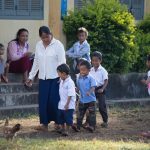
Chi Phat primary school, Koh Kong Province. Photo by ODC team, taken on 28 November 2017. Licensed under CC BY-SA 4.0.Access to free, good quality education in Cambodia is a right set out in the country’s Constitution: Article 65: “The State shall protect and promote citizens’ ref='https://opendevelopmentcambodia.net/topics/education-and-training/ ' class='cambodia-color'>...
Vocational education
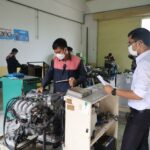
By definition, Vocational education refers to the program that enables people to acquire highly transferable and development skills. It also grants people the necessary technical skill for their desired career.64 Cambodia’s vocational education plays an important role during the country’s economic structural transition and the ref='https://opendevelopmentcambodia.net/topics/vocational-education/ ' class='cambodia-color'>...
Agricultural production
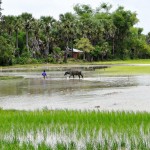
Rice field in Cambodia’s countryside. Photo by fmpgoh, taken on 15 July 2009. Licensed under CC BY-NC-ND 2.0The main products from the agriculture sector are rice, rubber, corn, vegetables, cashews and cassava. Unprocessed agricultural exports were projected to be more than 90 percent of total agricultural ref='https://opendevelopmentcambodia.net/topics/agricultural-production/ ' class='cambodia-color'>...
Disasters
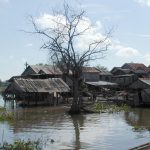
Storms, flooding and drought are the disasters that affect the largest number of people in Cambodia, and they also bring the highest cost. Climate change is likely to make things worse, with drier dry seasons predicted and more rainfall and violent storms in the wet ref='https://opendevelopmentcambodia.net/topics/disasters/ ' class='cambodia-color'>...
Labor
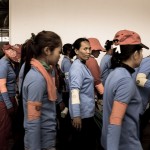
Garment workers waiting in line to get food. Photo by International Labour Organisation, taken on 14 July 2015. Licensed under CC BY-NC-ND 2.0.Cambodia has the highest labor force participation rate in the Southeast Asia/Pacific region, with 82.7 percent of the working population aged 16-64 employed ref='https://opendevelopmentcambodia.net/topics/labor/ ' class='cambodia-color'>...
Community forest

The Forest Law of 2002 provides a legal basis for rural communities to use and help manage forests through community forestry. ref='https://opendevelopmentcambodia.net/topics/community-forest/ ' class='cambodia-color'>...
Unions
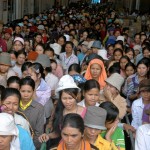
The rights to freedom of association are protected under Cambodia’s laws. Article 36 of the Constitution of the Kingdom of Cambodia provides that ‘Khmer citizens of both sexes shall have the rights to create unions and participate as its members’. Thus, under the 1997 Labor ref='https://opendevelopmentcambodia.net/topics/unions/ ' class='cambodia-color'>...
Sugarcane
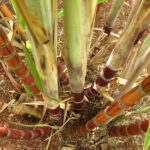
Growth in sugar production in Cambodia has created significant potential for sugarcane-based biofuel production. That potential has not yet been realized, though recent foreign investment may give rise to change. There are several types of sugar crop: sugarcane, sugar palm trees and sugar beets. Sugarcane ref='https://opendevelopmentcambodia.net/topics/sugarcane/ ' class='cambodia-color'>...
Elections
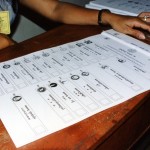
Election ballots, Cambodia. Photo by Daniel Littlewood, taken on April 20, 2004. Licensed under CC BY-NC-ND 2.0History of Cambodia’s electionsCambodia saw consecutive civil wars for more than 20 years after the coup in 1970. In 1991, parties in the conflict reached agreement to end the ref='https://opendevelopmentcambodia.net/topics/elections/ ' class='cambodia-color'>...
Agriculture and fishing
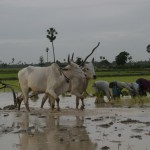
Rice farmers working in the field, Kandal province, Cambodia. Photo by ILO/ Khem Sovannara, taken on 12 July 2007. Licensed under CC BY-NC-ND 2.0.Agriculture continues to play an important role in Cambodia’s economy, but it provides a livelihood for a smaller proportion of today’s population ref='https://opendevelopmentcambodia.net/topics/agriculture-and-fishing/ ' class='cambodia-color'>...
Non-renewable energy production
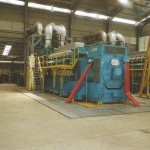
Non-renewable energy sources are chiefly fossil fuels such as coal, diesel, oil and gas. They provide most of Cambodia’s locally-produced electrical supply – in 2011 diesel and heavy fuel oil generators provided 89% of local electricity generation. ref='https://opendevelopmentcambodia.net/topics/non-renewable-energy-production/ ' class='cambodia-color'>...
Oil exploration in Cambodia

In Southeast Asia, Cambodia is one of the countries rich in natural resources—gemstones, gas, oil, phosphates, manganese, iron ore and timber.480 Since the early 2000s, many companies like Thailand’s PTT, Petro Vietnam and China National Offshore Oil Corp (CNOOC) have searched for possible oil reserves ref='https://opendevelopmentcambodia.net/oil-exploration-in-cambodia/ ' class='cambodia-color'>...
Infrastructure
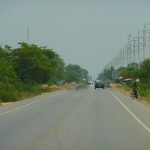
A national road in Cambodia. Photo by Pat Scullion, taken on 2 April 2010 under CC BY-NC-ND 2.0Infrastructure describes the built assets that allow a country to function, such as roads, railways, ports, airports, communication systems, electricity and drinking water distribution networks. The Ministry of ref='https://opendevelopmentcambodia.net/topics/infrastructure/ ' class='cambodia-color'>...
State public land

State public land has a public interest value or provides a public service. The land is inalienable, although it can be leased for limited uses that do not alter or damage its public value. State public land should only be reclassified if the land no ref='https://opendevelopmentcambodia.net/topics/state-public-land/ ' class='cambodia-color'>...
Extractive industries
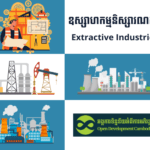
Extractive industries include mining and mineral sectors, natural gas and oil exploration, petroleum refineries, and quarrying for construction resources such as sand, stone, and gravel. Cambodia’s extractive resources have gone largely untapped, while these resources are geographically identifiable. French and Chinese geologists have been indicated ref='https://opendevelopmentcambodia.net/topics/extractive-industries/ ' class='cambodia-color'>...
Patient rights
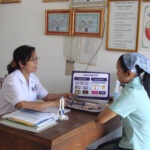
Access to quality healthcare is fundamental to enhancing citizens’ livelihoods and advancing towards more sustainable growth and development in countries all over the world. Along with increasing public demand for better health infrastructure and adequate access to healthcare services, many countries face the need to ref='https://opendevelopmentcambodia.net/topics/patient-rights/ ' class='cambodia-color'>...
Land tenure and land titling

Land registration and titling of private property has been ongoing for more than a decade. As the Cambodian government works to formally register all private property, there is a dual system of soft possessory rights to be replaced by hard ownership rights through nationally-recognized title. ref='https://opendevelopmentcambodia.net/topics/land-tenure-and-titling/ ' class='cambodia-color'>...



